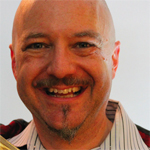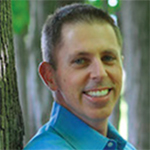By developing an academy of medical educators at HSS, Dr. Paget set himself up for the next phase of his career. The work makes him tap administrative strengths that he gained over time, uses his experience as chair of medicine/rheumatology and requires information that he gained in his master’s program. “It’s important to note that when one door closes, another one opens. You just need to be tuned in to your professional environment so that you can find that door more easily,” he says. “Activities that I could not have done as chairman of rheumatology, I now have the time to do.”
Stay on Target
When looking to achieve your goals, consider setting goals that are SMART—specific, measurable, attainable and realistic, and have a timeframe attached. For example, wanting to lose weight is not a goal, it’s a wish. But deciding that you want to lose 15 lbs. (a specific and measurable action item) over six weeks (realistic and attainable) by June 1 (time limit) is a goal. “When you set SMART goals, you set yourself up for success in meeting them,” Ms. Wright says.

Mr. Flahiff
Joseph Flahiff, a leadership coach and founder of Whitewater Projects Inc., in Bothell, Wash., a company that helps leaders of organizations quickly adapt to changing industries and markets, advises taking a large goal and breaking it into smaller, achievable goals. “You’ll be much more motivated to stay on target” by doing so, he says. “When you try to do things that are merely tasks that don’t give you a sense of accomplishment, you are less likely to finish them. You need that hit of dopamine. Your body is designed to give you a feeling of satisfaction for your accomplishment.”
Dr. Paget advises finding a faculty member who best exemplifies the person you want to be. “That mentor should guide you and develop a road map for your future,” he says. “If you join a medical school faculty, be aware of what achievements are needed at your specific medical school or hospital to move from instructor, to assistant professor, to associate professor and, eventually, to professor. Once you see this, you will understand exactly what is needed to achieve those goals.”

Mr. Casemore
Shawn Casemore, president and founder of the professional empowerment consulting firm, Casemore & Co. Inc., in Owen Sound, Ontario, Canada, recommends keeping key goals in front of you, such as on a sticky note at your computer or on a notepad on your night table. He also suggests writing down your goals and reviewing them daily. Add notes as time passes regarding specific actions you want to take that will support you in achieving your goals, he says.

